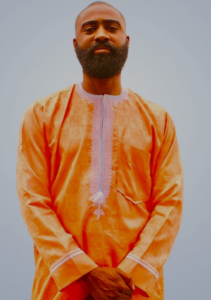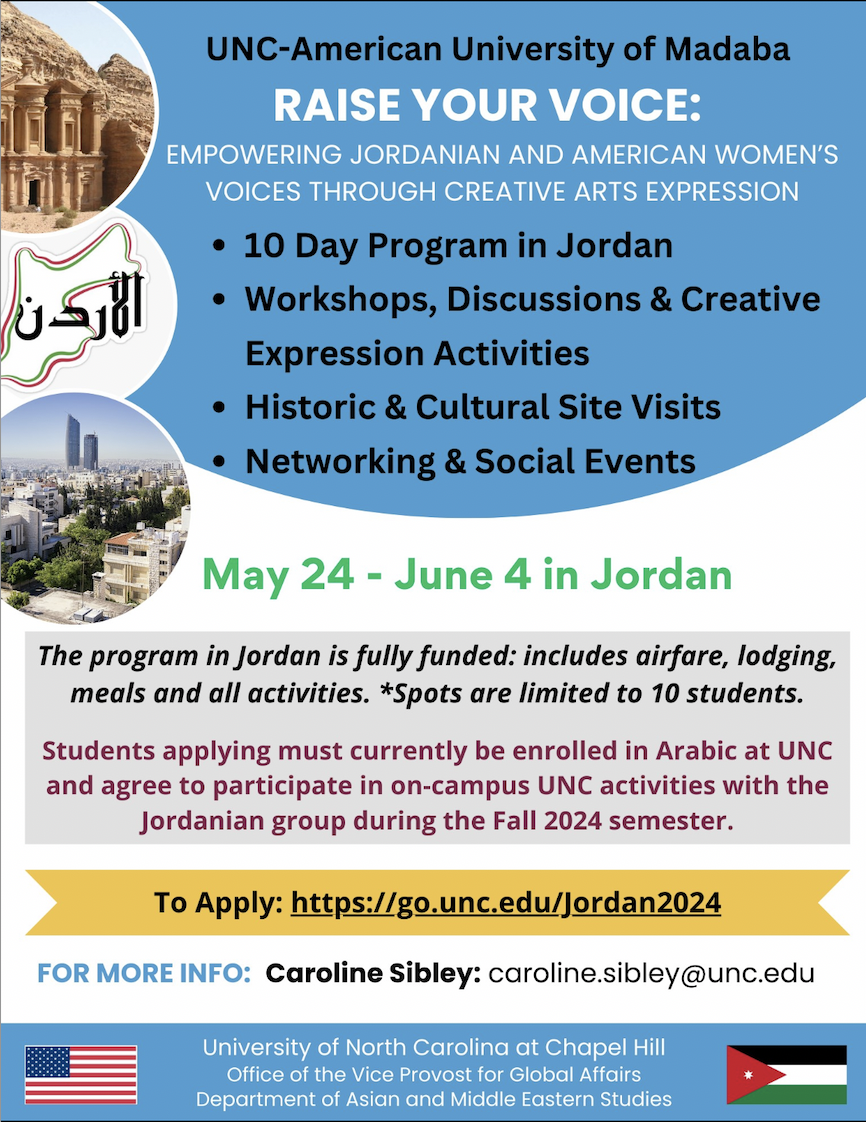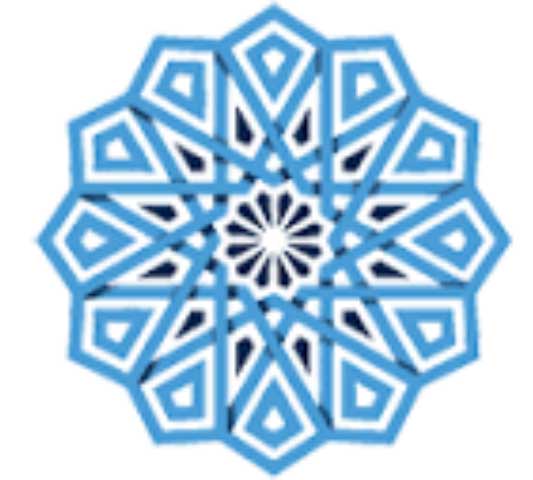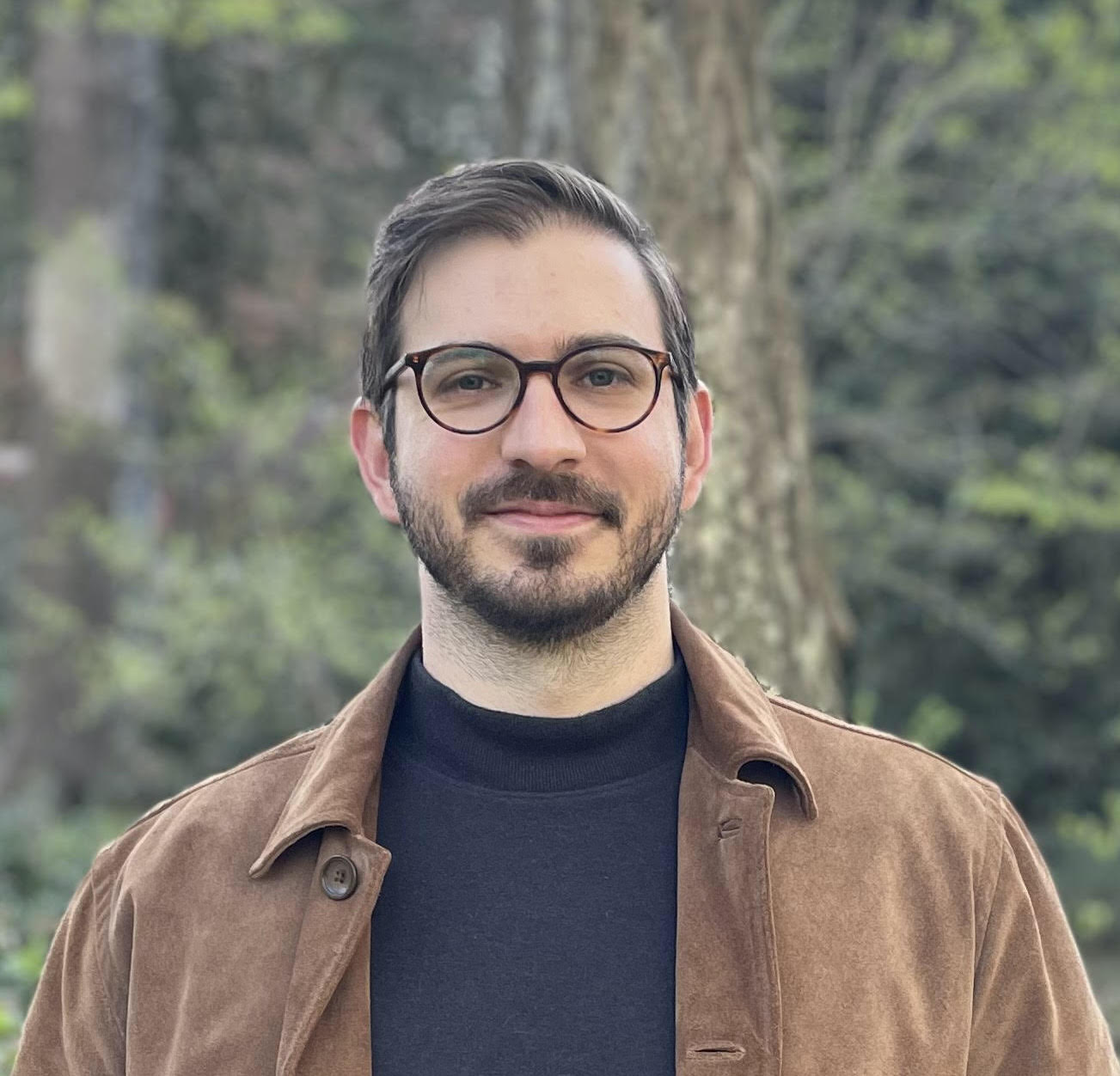
The Center for Middle East and Islamic Studies is excited to welcome Dr. Youssef Carter to as a center member. Dr. Carter joined the Department of Religious Studies at UNC-Chapel Hill in July 2020 as Assistant Professor and Kenan Rifai Fellow in Islamic Studies.
Dr. Carter has a special interest in Sufism, a passion that has been sparked by years of research and involvement amongst Black Muslim communities in the United States as well as Senegal. When it comes to the classroom, Dr. Carter loves to see his students engaged, especially when the conversation turns towards African-American Muslims in the Black Freedom Struggle to more recent events, such as the influence of Black Muslims in hip-hop music.
As well as working towards the publication of his first book, “The Vast Oceans: Remembering God and Self on the Mustafawi Sufi Path”, Dr. Carter currently serves on the editorial team for the Journal of Africana Religions. At UNC, Dr. Carter will be teaching: RELI 580, African American Islam (Fall 2020), RELI 064 (FYS), Re-Introducing Islam (Spring 2021), and RELI 423, Ethnicity, Race and Religion in the United States (Spring 2021).
Interview with Dr. Carter
- What are you looking forward to most about being at UNC?
What am I looking forward to most regarding my arrival at UNC is joining an academic environment that I feel can properly welcome and support my research and commitment to teaching. UNC, generally-speaking, has a rich legacy regarding scholarly excellence and community engagement, and am happy to be a part of that tradition.
- Have you always known that you wanted to become a professor or did something happen along the way that made it clear for you?
I have always identified as an educator, and I have taught at practically all levels of education up until this point. My being a professor is merely the development and reflection of my own growth and commitment as an educator. I consider the opportunity to educate others to be a privilege and a sacred trust with the aim of building communities and contributing to the positive growth of my fellow community members.
- Based off your book “The Vast Oceans,” your interest in Sufism is apparent. Where does this interest come from?
My academic interest in Sufism is an extension of my own personal spiritual journey over the years. Further, it is a culmination of my years-long research and observation of Black Muslim communities in the United States and Senegal.
- Your course, Reli 580, is African-American Islam. Which section of this course do you believe your students will enjoy the most and which part are you most looking forward to teaching?
Thus far, my students seem to enjoy, or find meaningful, each conversation that we’ve had. I believe that they will be intrigued by the enduring role that African-American Muslims played in the Black Freedom Struggle, which extends from the early history of the United States up until to the present. In particular, I believe they will be most interested in learning about Black Muslim influence on hiphop’s “golden years” (1980s-1990s) as those discussions tend to be a bit more relatable to most students.
- Besides your book project, “The Vast Oceans: Remembering God and Self on the Mustafawi Sufi Path,” what other projects are you currently involved with?
Aside from working toward the publication of my first book, I have recently agreed to serve on the editorial team for the Journal of Africana Religions. As well, I am working with colleagues to move forward on restarting the Sylvia Jacobs African Diaspora Studies symposium that I co-founded as a NCCU graduate student more than a decade ago. Finally, I recently completed editing a multi-volume spiritual biography of Shaykh Ahmad Bamba Mbacke of Senegal, which was authored by one of his great-grandsons, Shaykh Moustapha Mbacke.
Abdulrahman Sarsour, Class of ‘24





